Atlantis Uncovered: The Shocking Truth Behind the Legendary Lost City
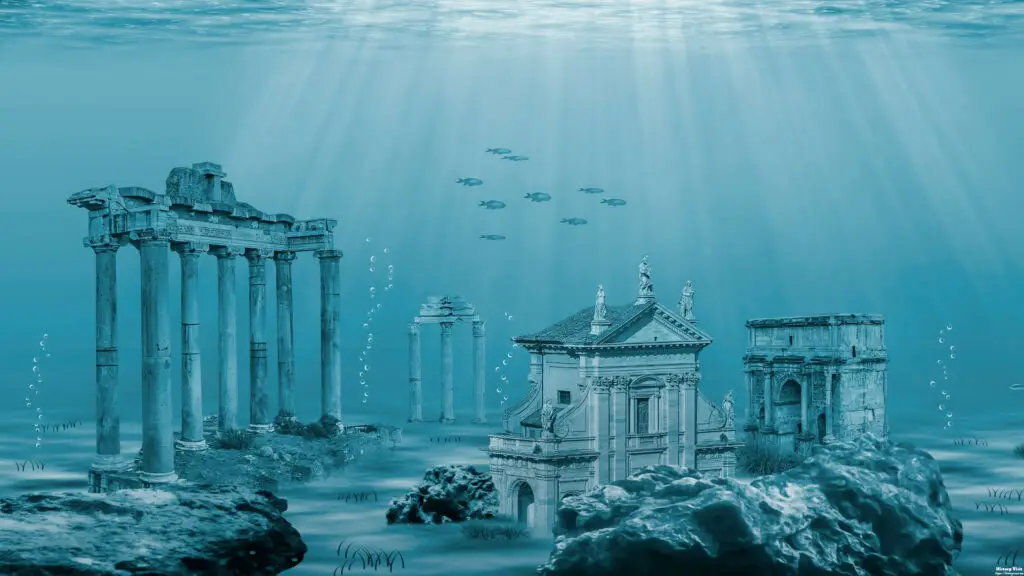
Introduction
The Lost City of Atlantis has captivated the human imagination for millennia. First described by the ancient Greek philosopher Plato, Atlantis is often depicted as a technologically advanced utopia that vanished mysteriously beneath the waves. The myth of Atlantis has inspired countless theories, speculations, and works of fiction, making it one of the most enduring legends in human history. Its story is not just about a lost civilization, but also about the enduring human fascination with mystery and the unknown.
Plato’s tale of Atlantis has sparked debates among historians, archaeologists, and enthusiasts. Some see it as pure allegory, a story with moral and philosophical lessons rather than a factual account. Others believe that Atlantis might have been based on real events or places, pointing to various locations around the world where evidence of such a civilization might be found. The intrigue surrounding Atlantis lies in its dual nature as both a profound myth and a tantalizing possibility.
This article will explore the origins of the Atlantis legend, delving into Plato’s account, the various geographical theories, and the cultural impact of this enigmatic story. By examining the historical context and subsequent interpretations of the Atlantis myth, we aim to understand why it continues to captivate and inspire. Whether as a metaphor for human hubris or a lost chapter of history, Atlantis remains a powerful symbol of mystery and discovery.
Plato’s Account
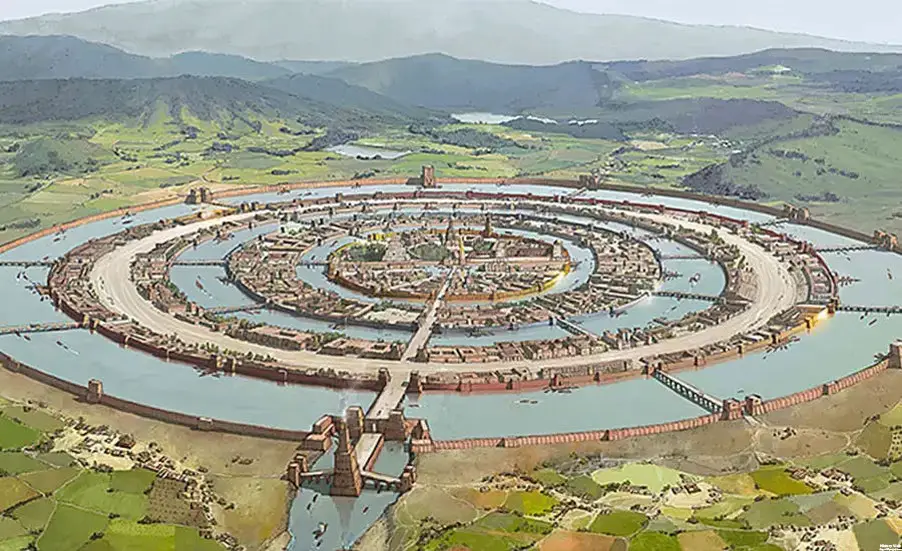
Plato introduced Atlantis in his dialogues “Timaeus” and “Critias,” written around 360 BCE. According to Plato, Atlantis was a powerful and technologically advanced civilization that existed around 9,000 years before his time. Situated beyond the “Pillars of Hercules” (modern-day Strait of Gibraltar), Atlantis was said to be a large island with a highly organized society, grand architecture, and abundant natural resources. The Atlanteans, initially virtuous and wise, eventually became corrupt and imperialistic, leading to their downfall.
In “Critias,” Plato provides a detailed description of Atlantis’s geography, architecture, and society. He describes concentric rings of water and land, magnificent palaces, and advanced infrastructure, including a complex irrigation system. The narrative portrays Atlantis as a formidable naval power that sought to conquer the Mediterranean. However, the Atlanteans’ moral decay provoked the wrath of the gods, resulting in the island’s sudden submersion into the ocean in a single day and night of misfortune.
Plato’s story of Atlantis was likely intended as an allegory to convey deeper philosophical and ethical lessons. Through the rise and fall of Atlantis, Plato illustrated the dangers of hubris, the moral responsibilities of power, and the impermanence of human achievements. Ancient interpretations of Plato’s account varied, with some contemporaries viewing it as a literal historical record and others recognizing it as a metaphorical or moralistic tale.
Geographical Theories
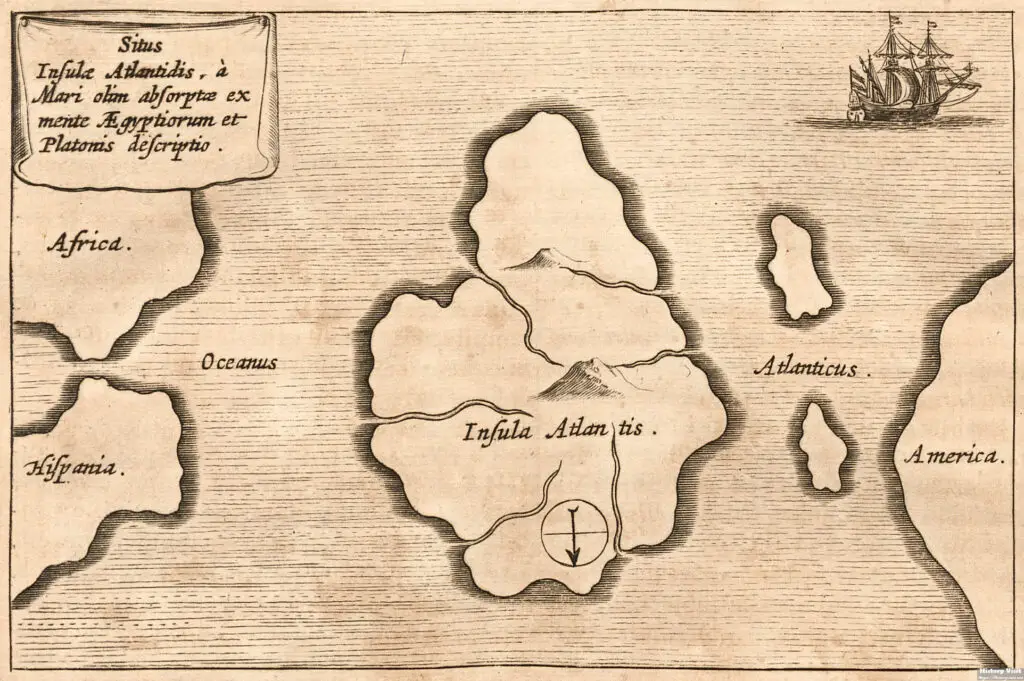
Over the centuries, numerous locations have been proposed as the possible site of Atlantis. One of the most popular theories links Atlantis to the Minoan civilization on the island of Crete and the nearby Thera (Santorini) island. The Minoans were an advanced society with impressive architecture and maritime prowess, much like Plato’s description of Atlantis. The catastrophic volcanic eruption on Thera around 1600 BCE could have inspired the myth, as it caused massive destruction and may have contributed to the decline of the Minoan civilization.
Other proposed locations include the Mediterranean, the Caribbean, and even Antarctica. Some theories suggest that Atlantis could be a misremembered account of ancient civilizations such as Troy or Tartessos. The idea that Atlantis might have been located in the Americas gained traction during the Age of Exploration, with some explorers and scholars positing that the advanced pre-Columbian civilizations, like the Maya and Aztecs, were remnants of Atlantean descendants.
Critiques of these geographical theories often point out the lack of concrete evidence and the tendency for each new theory to reflect the biases and imaginations of its proponents. The true location of Atlantis, if it ever existed, remains a matter of speculation and debate. Nonetheless, the search for Atlantis continues to inspire archaeological expeditions and scholarly research, driven by the hope of uncovering a lost chapter of human history.
Atlantis in Ancient Cultures
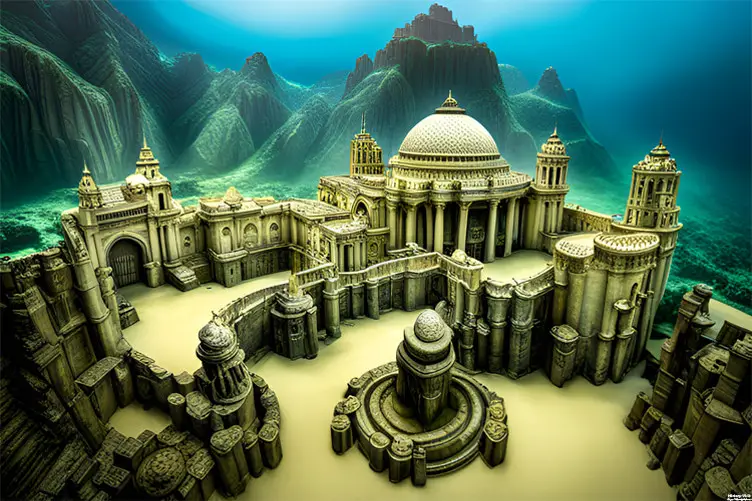
The Atlantis myth has been compared to other ancient stories of lost civilizations and catastrophic floods. Many cultures have myths about great deluges, such as the Biblical flood of Noah, the Mesopotamian Epic of Gilgamesh, and the Hindu story of Manu. These similarities suggest a shared human fascination with the theme of destruction and rebirth, possibly rooted in collective memories of natural disasters.
In ancient and medieval thought, the story of Atlantis influenced a range of philosophical, religious, and literary works. Early Christian scholars debated the existence of Atlantis, with some viewing it as a cautionary tale against moral decay. During the Renaissance, renewed interest in classical texts brought the story of Atlantis back into the spotlight, inspiring explorers and scholars to search for the lost city.
The Atlantis myth also intersected with ancient Greek philosophy and mythology, influencing ideas about ideal societies and the human condition. Plato’s narrative was not merely a tale of a lost civilization but a profound commentary on the cyclical nature of history and the moral responsibilities that come with power. The story’s impact on ancient cultures underscores its enduring relevance and the timeless themes it explores.
Conclusion
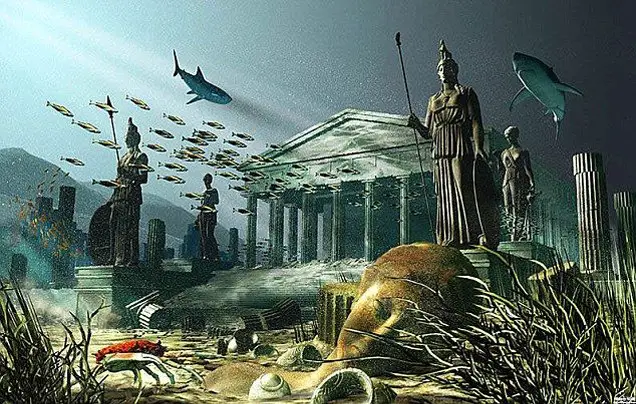
The origins of the Atlantis legend lie in the writings of Plato, whose account has inspired countless interpretations and theories. From ancient discussions to modern archaeological investigations, the story of Atlantis continues to captivate the human imagination. Its allure lies in its dual nature as both a profound myth and a tantalizing possibility, a symbol of lost knowledge and human ambition.
The geographical theories surrounding Atlantis, ranging from the Mediterranean to the Americas, reflect the enduring quest to uncover the truth behind the legend. Despite the lack of definitive evidence, the search for Atlantis persists, driven by the hope of discovering a lost chapter of human history. The story of Atlantis has also influenced a wide range of ancient cultures and continues to resonate in contemporary thought, underscoring its timeless themes and enduring appeal.
As we reflect on the legacy of Atlantis, we see a symbol of the human spirit’s unending quest for knowledge and understanding. The myth of Atlantis challenges us to consider the impermanence of civilizations, the moral responsibilities of power, and the enduring allure of the unknown. Whether as a metaphor for human hubris or a historical enigma, Atlantis remains a powerful and evocative part of our collective imagination.


